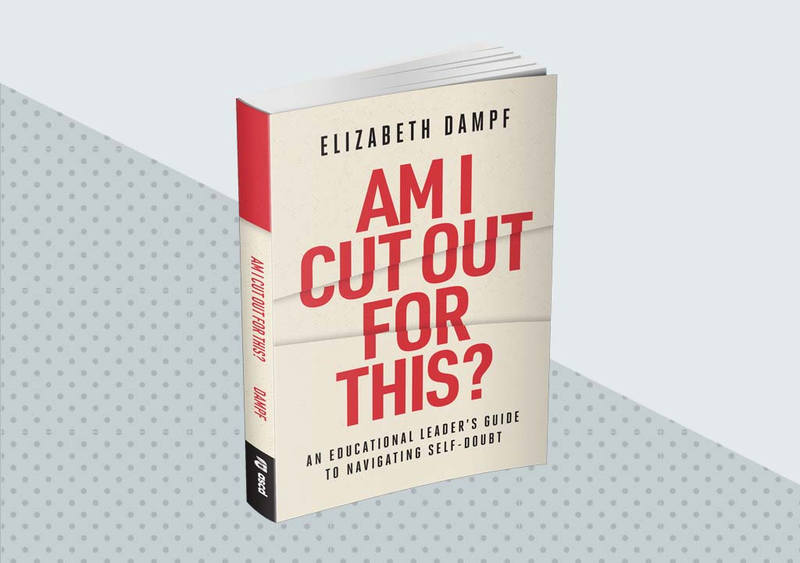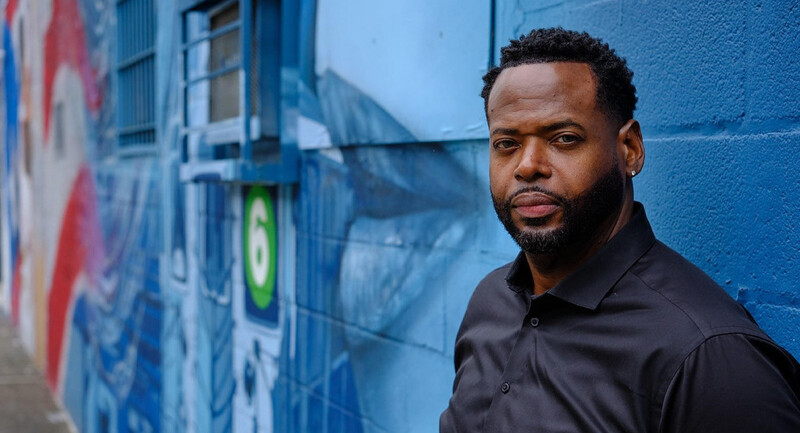Self-doubt is more common in school leadership than many admit—and less of a weakness than it may at first seem. In her new book, Am I Cut Out for This? An Educational Leader’s Guide to Navigating Self-Doubt, Elizabeth Dampf draws on her experience as a building- and district-level administrator to explore how leaders can work through doubt, not around it.
In this excerpt, Dampf suggests a mindset shift for leaders navigating uncertainty: Stop aiming to be the expert and instead lean into curiosity. She offers three habits of mind that can help educators lead with trust, humility, and confidence—even when the path forward isn’t clear.
The unofficial motto of the U.S. Marines is “Improvise, adapt, and overcome,” the idea being that Marines trust their skills in the face of the unknown. Channel these elite warriors whenever you roll out an innovation. Even though you don’t know what will happen, what hurdles you’ll face, or what results you’ll see, you must master your fear as you enter the unknown.
The key to mastering your fear is changing your self-image. Do you see yourself as the only brain in the room, the only advocate for change, the only source of innovation? Do you expect to have an answer to every question and a solution to every problem? Do you, in fact, make it your business to solve other people’s problems for them? Well-meaning leaders do this all the time. They distort Truman’s “The buck stops here” aphorism, interpreting it to mean that solid leadership requires omniscience, and burn themselves out trying to know and control everything. Ironically, this mentality stokes fear rather than allaying it because it’s a fool’s errand: We can’t know and control everything, and in trying to, we inevitably fail, thus inflaming our doubt.
Instead of pressuring yourself to be all-knowing and all powerful, try seeing yourself as a learner. Brené Brown’s work is helpful. As she says, “When we dare to lead, we don’t pretend to have the right answers; we stay curious and ask the right questions” (Brown, 2018, cover copy). Or, in the immortal words of Ted Lasso: “Be curious, not judgmental” (Sudeikis et al., 2020).
If you cast yourself as curious, you will never fear the unknown. Curious people love the unknown. They want to swim around in it, basking in fresh discoveries and soaking in new knowledge. They believe confronting the unfamiliar helps them grow wiser and more capable. They’re not reckless—they don’t rush in with brazen bravado—but they know their skills are always evolving, preparing them to respond to whatever they discover in the vast unknown.
Many educational leaders view themselves this way—in theory, at least. The phrase “lifelong learner” is bandied around so often as to be meaningless, and I’ve never interviewed a job candidate who didn’t proclaim a humble eagerness to learn. In practice, though, it’s a different story. When trying to sell a plan in the face of implacable resistance, we often revert to a feral state, projecting invulnerability as a defense mechanism. We forget those noble intentions of curiosity and lifelong learning and pressure ourselves to have all the answers.
If you’re looking to become the curious learner you aspire to be, focus on three habits of mind:
1. See others as intelligent.
Liz Wiseman defines “multipliers” as leaders who “assume that people are smart and will figure it out. To their eyes, their organization is full of talented people who are capable of contributing at much higher levels” (Wiseman, 2017, p. 19). How might you lead your team when you truly believe them to be smart, talented, and capable of much more than you’re currently asking of them? How might your responses to resistance, nitpicking, and manipulation be different? You’d definitely spend less time solving other people’s problems for them, and you’d probably discover latent leadership skills in otherwise quiet staff members. If you assume that other people are intelligent and capable of figuring out solutions on their own, you’ll be less likely to frame yourself as the only innovator in the building, responsible for the success, happiness, and efficacy of every person in it.
Curious people love the unknown. They know their skills are always evolving, preparing them to respond to whatever they discover in the vast unknown.
2. Ask an extra question.
When leaders project omniscience or invulnerability, it’s often the result of speaking too quickly. We think, Someone is bringing a problem to my attention—I must solve it immediately or I’m a terrible leader! But we cannot solve problems if we don’t have all the facts. To be truly curious, you must assume you don’t know everything and explore the situation until you do. Commit to withholding your answers, advice, or ideas until you have asked one more question than you think you need to. When you feel yourself bursting to jump into a conversation with your sage advice, count to three in your head, form a question intended to deepen your understanding, and ask it. You—and your team—will be glad you took the time to understand before rushing in with a decision.
3. Practice saying, “I don’t know.”
Embracing uncertainty is yet another virtue leaders think they embrace much more than they do. In the heat of the moment, when we’re under pressure to answer rapid-fire questions and defend unpopular choices, we pop out answers without thinking through ramifications, often resorting to speculation, guesswork, or half-truths. Avoid this tendency by practicing ways to say, “I don’t know” that sound natural to you. This is easy for small-scale questions which have a definitive right answer: “That’s a great question, and I want to make sure I’m giving you the right answer, so let me get back to you.” It’s harder when questions arise to which there can never be a solid, universal answer—when people ask you to predict the future, control the uncontrollable, or account for every hypothetical. Think about how to phrase an answer that essentially comes down to “I don’t know” in a way that is conscientious, respectful, and honest. For example, if a teacher asks how parents will respond to a new discipline policy—a question only a mind reader could answer—you can say, “All we can do is communicate clearly, which we have done, and uphold our policies consistently, which we will do. I don’t know how parents will respond, and I can’t control their reaction. I do know, though, that we will seek their perspective after we’ve tried the new policy for a semester.”
Habits of mind that take us from omniscient overlord to curious learner mitigate our fear by helping us embrace the unknown. When facing a future that we can’t predict or control, we want to feel confident in our ability to learn on the spot, assess the facts, and trust our teammates—in short, to improvise, adapt, and overcome.
Brown, B. (2018.) Dare to lead: Brave work, tough conversations, whole hearts. Random House.
Sudeikis, J., Lawrence, B., Hunt, B. (Writers), & Lowney, D. (Director). (2020, September 18). The Diamond Dogs (Season 1, Episode 8) [TV series episode]. In B. Lawrence, J. Sudeikis, & B. Wrubel (Executive Producers), Ted Lasso. Ruby’s Tuna; Doozer; Warner Bros. Television.
Wiseman, L. (2017). Multipliers: How the best leaders make everyone smarter. HarperBusiness.
Am I Cut Out for This?
Whether you are new to the profession or an experienced administrator, Am I Cut Out for This? is the tool you need to affirm, support, and inspire you to continue your leadership journey with greater skill and confidence.









